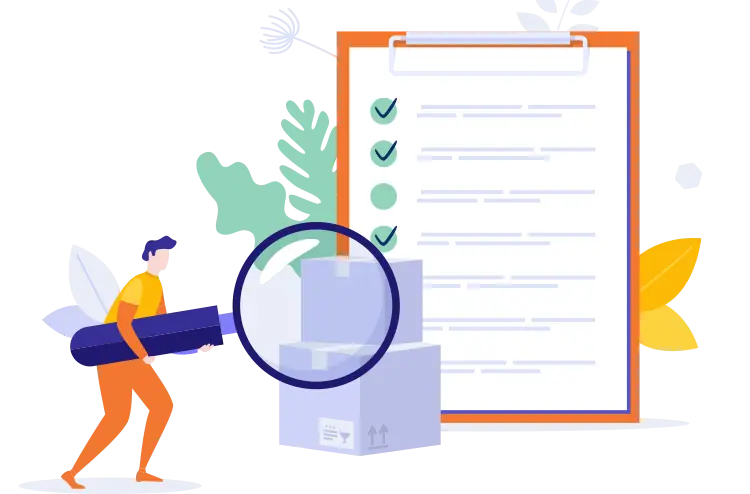The 7 requirements of a B2B eCommerce platform
02-05-2023

Reliability is perhaps the most important aspect of a B2B eCommerce platform. When you choose a partner, you naturally want the platform they offer to be available 24/7 and preferably have as little downtime as possible. In addition, data security and privacy must be guaranteed. After all, you don't want your customer data on the street.
Scalability is also important. The platform must be able to grow with your organization and your customers' demand. This means that the eCommerce environment must be flexible and easy to expand. In addition, the platform must offer sufficient opportunities for further development. It is important to regularly add new functionality to stay ahead of your competition.
We know better than anyone how important personalization is. It allows you to increase the results of your online sales. In the B2B market, customers are often looking for solutions to complex problems and need personal attention and guidance. When you use different segments, you can show or not show certain content and products. And that's convenient, because it makes it easier for your customers.
Personalization goes beyond just showing the customer's name on the web shop. It is about the platform keeping track of customers' purchases and searches so that they are recommended related products based on previous purchases and interests. In addition, an eCommerce platform offers the ability to show price deals, discount codes and special offers based on the customer's specific needs. For example, use purchase data to recommend products at an attractive discount.
Cost plays an important role when choosing a B2B eCommerce platform. It is important to look at the total cost, not just the initial investment. Consider, for example, the cost of maintenance, updates and expansions. With many SaaS eCommerce solutions, you pay a flat monthly fee depending on usage and a one-time project implementation.
An integration with your back office systems such as the ERP system, for example, is essential. You want to do as little manual work as possible. At CloudSuite, we believe that your eCommerce platform should be able to synchronize data with other business systems such as an ERP or CRM system. This means that all product data, prices, discounts, orders, invoices and payment information are automatically updated in your systems.
Together, we ensure that business processes run more efficiently and that less manual work is required to synchronize data between systems. In addition, integration with back office systems enables real-time reporting, giving companies better insights into their performance and areas for improvement.
Your customers often have specific product needs and search for certain information, such as product information, technical specifications and pricing. Therefore, it is important to have a platform with advanced search and filtering capabilities. This helps your customers quickly find the products they need and makes it easier for them to compare and order products.
In addition, personalized accounts allow you to load recommendations, making the final purchase easier. This way, customers don't have to spend a long time searching for the products that are relevant to them.
Security and compliance are very important, not only for you as a wholesaler or brand manufacturer, but also for your customer. In your web shop, you process a fair amount of personal data, for example, customer address and financial data. Naturally, you want to store and process this data as securely as possible.
Standard platforms are equipped with SSL/TLS encryption to encrypt data during transmission. It is also important to check the location of the servers (AVG), which data security techniques the vendor uses such as firewalls, antivirus software and access control, and whether the platform complies with regulations such as the AVG and PCI DSS.
When looking for a SaaS eCommerce platform, you obviously don't want to worry about the availability of technical support and about the continued development of the platform. We often see this as one of the main reasons for choosing a SaaS solution.
An important aspect is the availability of documentation and manuals. This can help customers find their own answers to their questions and problems, making them less dependent on support support. Having a comprehensive knowledge base can help with this.
In the increasingly digital economy, having a B2B eCommerce platform is essential for companies in the business market. To compete and grow, a B2B eCommerce platform must meet a number of requirements. These include personalization, mobile accessibility, integrations with back-office systems, advanced search and filtering capabilities, and security and compliance.
Companies that take these requirements seriously are able to increase customer satisfaction and loyalty, streamline business processes and gain insight into their performance. It is important to remember that these requirements require not only one-time implementation, but also regular maintenance and updates to continue to meet changing customer and market needs.
Want to learn more about how our eCommerce solution can help your organization? Check out our solutions here.
What is involved in a replatforming project and how do you prepare well?